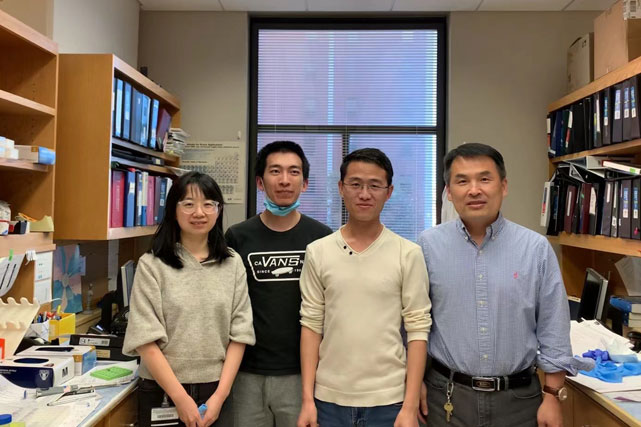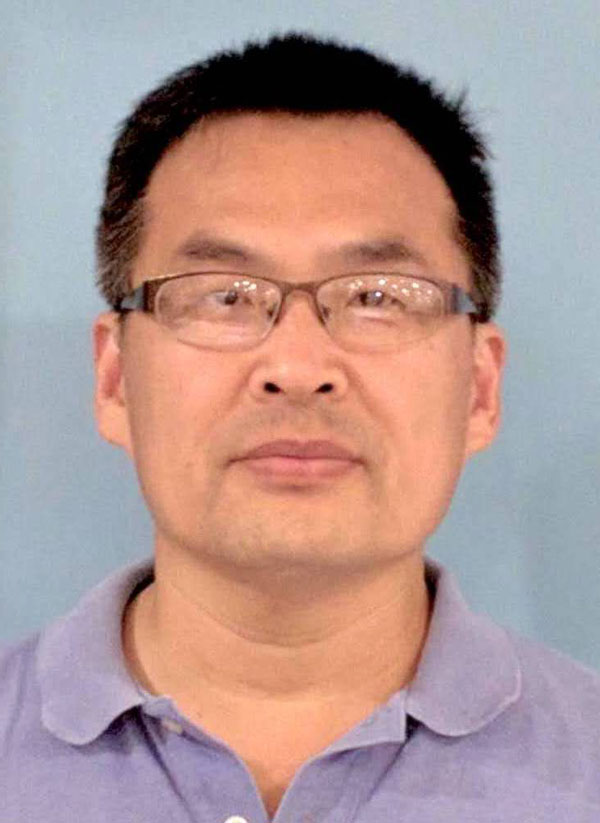Latest News
New faculty recruit to explore epigenetics of health inequities
Feb 11, 2022

Last week, Hengbin Wang, Ph.D., joined Massey as a member of the Cancer Biology Program and the VCU School of Medicine as a full professor.
Wang started his scientific career in plant physiology and biochemistry at the China Agricultural University in Beijing.
“I studied plants because in China we have a lot of emphasis on agriculture,” Wang said. “I had a very famous Ph.D. mentor and he taught me how to think about scientific problems.”
Wang moved to the U.S. in 2000 for a postdoc at UNC Lineberger Comprehensive Cancer Center, where he studied the link between epigenetics – biochemical forces within chromosomes that influence gene expression – and cancer, with the ultimate goal of improving human health. He continued to focus on this line of research for the next two decades as faculty at the University of Alabama Birmingham.
In Richmond, Wang will be working with Massey director Robert A. Winn, M.D., to explore how epigenetics plays into cancer health disparities, especially in terms of understanding how stress and subjugation is passed through generations as well as how a person’s home address – which Winn refers to as Zip Code and Neighborhood Association, or “ZNA” – might change gene expression to increase cancer risk.
“Dr. Wang’s work in the field of epigenetics is timely, and his desire to take on health disparities will take decades of research to a whole new level,” said Winn, who is also Lipman Chair in Oncology at Massey, senior associate dean for cancer innovation and professor of pulmonary disease and critical care medicine at the VCU School of Medicine. “Epigenetics could help us explain how ancestry and ZNA contribute to chronic disease.”

With epigenetics, environmental factors cause the DNA strand to be bound up, which affects whether genes are expressed or silent. If a gene, or its necessary modifiers, is wrapped up too tightly inside the chromosome, then it can’t be translated into proteins.
Scientists refer to these changes as “marks” and they’ve been associated with a host of factors, including diet, education, obesity, smoking and pollution.
These marks can also be inherited, literally causing “the sins of the father [to] fall on the son,” which is particularly sad when those “sins” are the result of structural racism and therefore no fault of the father.
The good news is that epigenetics are also malleable. Just as certain exposures place harmful marks on the DNA strand, others can have a positive effect on gene expression.
“With genetics, you get what you get,” Wang said. “With epigenetics, you can change your fate. You can change your destiny.”
Through Massey’s Molecules to Medicine program, Wang hopes to find diet and drug interventions that can act on epigenetics to lessen racial and ethnic cancer disparities.
Written by: Erin Hare, Ph.D.
Related News
Research & Innovation
Genetic code deploys cancer mafia, new targeted drug gives them an offer they can’t refuseSep 3, 2025
Research & Innovation
Researchers awarded $7.3 million grant to launch groundbreaking breast cancer clinical trialAug 28, 2025

Get access to new, innovative care
Treatments in clinical trials may be more effective or have fewer side effects than the treatments that are currently available. With more than 200 studies for multiple types of cancers and cancer prevention, Massey supports a wide array of clinical trials.

Find a provider
Massey supports hundreds of top cancer specialists serving the needs of our patients. Massey’s medical team provides a wealth of expertise in cancer diagnosis, treatment, prevention and symptom management.
